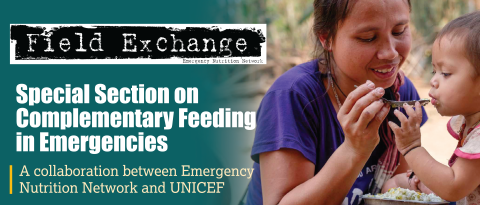Carers’ and health workers’ perspectives on malnutrition in infants aged under six months in rural Ethiopia: A qualitative study
This is a summary of the following paper: Jibat N, Rana R, Negesse A et al (2022) Carers’ and health workers’ perspectives on malnutrition in infants aged under six months in rural Ethiopia: A qualitative study. PloS one, 17, 7. e0271733. https://doi.org/10.1371/journal.pone.0271733
Similar to many other low- and middle-income countries, the Ethiopian Ministry of Health recommends inpatient-only treatment for infants under the age of six months as part of their national guideline for managing severe acute malnutrition.
To inform policy and research in this area, and in particular to inform a planned future cluster randomised controlled trial on the effectiveness of a new management of small and nutritionally at-risk infants under six months and their mothers (MAMI) Care Pathway Package, this qualitative study aimed to assess the perception and understanding of malnutrition in infants under the age of six months and their management among carers, communities and healthcare workers in rural Ethiopia.
In total, 31 interviews (17 in-depth interviews with carers/community members and 14 interviews with healthcare workers and managers as key informants) were conducted using purposive sampling between May and August 2020 in Jimma Zone and Deder District of Eastern Hararghe Zone. The data were analysed using a thematic analysis framework in which several barriers and facilitating factors were explored.
The main findings, according to the five key thematic areas, were as follows: 1) perceptions about health and well-being: an “ideal infant” was one that slept well, fed well, was active and looked “fat”; 2) perceptions about feeding infants: overall knowledge of key recommendations such as exclusive breastfeeding was generally good but practices were sub-optimal – one notable cultural practice was to give water to young infants, which runs contrary to WHO guidance that breastmilk alone is all that is needed for this age group; 3) awareness about malnutrition: a key limitation was knowledge of exactly how to identify small and nutritionally at-risk infants; 4) reasons for malnutrition: levels of understanding varied and included feeding problems and caregiver’s work pressures resulting in the premature introduction of complementary feeds; and 5) perceptions of identification and treatment: carers preferred treatment close to home but were concerned about the quality of community-based services.
The study findings further highlight the need to expand efforts beyond a focus on shifting knowledge and attitudes, moving towards offering different practical and context-specific initiatives to support mothers with infants under the age of six months to prevent the occurrence of malnutrition and associated complications in this age group. Such initiatives include supporting the health and well-being of the mother (including maternal mental health), providing economic support to those in need and providing extended maternity leave for employed mothers.
There remains a need for improved nutrition education related to infants under the age of six months. Nutrition actors should also build on existing community/healthcare system strengths and address common myths/misconceptions to increase the likelihood of a positive impact. Future programmes must also ensure a trusted and non-judgemental relationship between mother and health worker, which remains essential. This study has provided the framework for other countries to profile and better understand their context and sugested a path-opening step to effectively implement the MAMI trial project in local and contextual bases.


